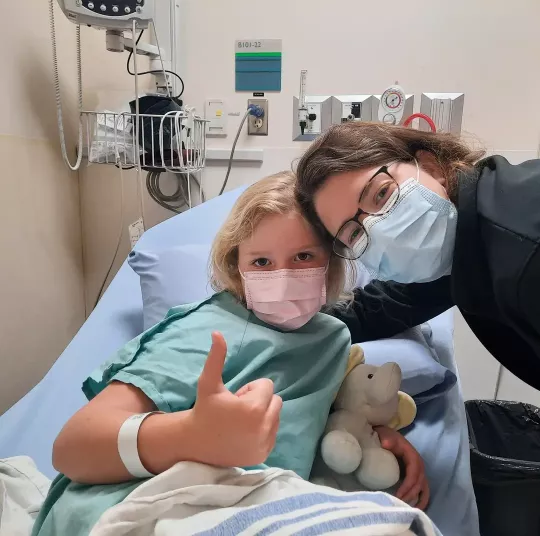Nora Francis has a creative eye.
The eight-year-old loves to draw pictures, make crafts, and write stories.
Her passion for art is clear, but the future of her sight wasn’t always so certain.
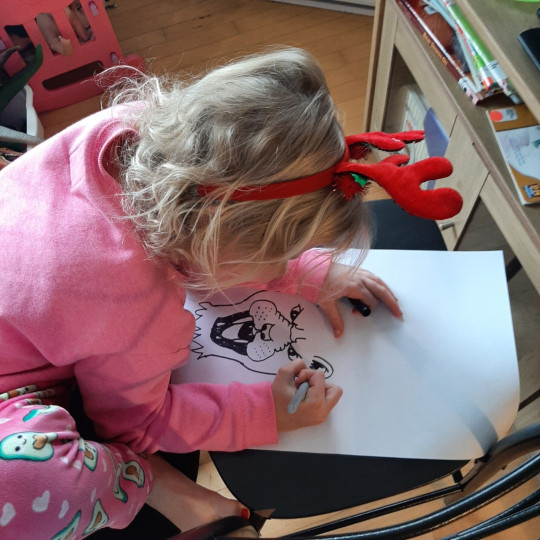
Nora Francis, photo submitted
“She developed a nystagmus, which is her eye started rapidly moving up and down and we didn’t know what that was so we rushed her to the IWK,” says Nora’s mother, Sitka Polk.
That was when Nora was just five weeks old. After two years of tests – and fear and anxiety for Polk and her husband – Nora was diagnosed with Leber’s Congenital Amaurosis (LCA), a rare group of hereditary retinal diseases often leading to blindness at a young age.
“We didn’t know we had it,” says Polk. “We never knew any relatives who were blind or had any inkling that this was in our genetics until Nora was tested.”
Nora underwent genetic testing to determine which type of LCA she had. A gene therapy treatment had been seeing success in the United States in treating Nora’s specific type of LCA. Eventually the treatment was approved and funded in Canada.
“Last year we flew to Edmonton, and she had her right eye done on April 28 and then two weeks later she had her left eye done on May 12,” Polk says.
Genetic testing, like what Nora went through, plays a vital role in precision medicine – a new and disruptive approach to the way healthcare is delivered.
While the IWK has a long history of precision medicine practice, its power and potential will now be pushed to new heights with the establishment of the IWK Maritime Centre for Precision Medicine.
“Precision medicine uses information about a person's genes, proteins, environment, and lifestyle to prevent, diagnose, or treat disease,” says Lee Anne Boutilier, IWK Health Manager of Clinical Genomics, and IWK lead for precision medicine transformation. “Precision medicine moves away from a ‘one-size-fits-all’ approach and aims to offer personalized treatment plans, which could identify more effective and less toxic therapies. Precision medicine approaches can also help diagnose conditions earlier and help people make treatment decisions that are right for them.”
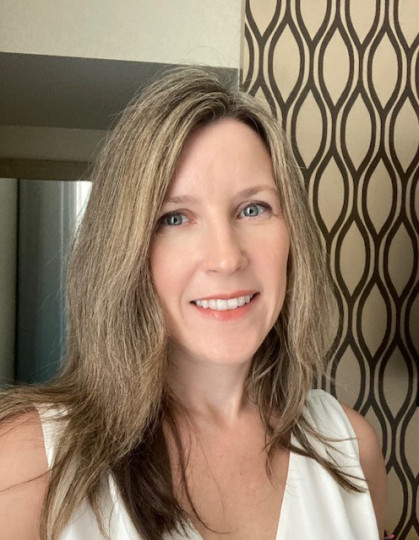
Lee Anne Boutilier, photo submitted.
The new centre will unify the activities of clinical genomics, newborn screening, Maritime Medical Genetics, and data analytics and expand that work exponentially to help detect and treat life-altering diseases in Maritime children, women, and adults.
“This investment in precision medicine is advancing the future of medicine and patient care in our region,” says Boutilier. “By establishing the IWK Maritime Centre for Precision Medicine, we’re shifting to a forward-thinking strategy. Our focus on diagnostics, therapeutic interventions, and education initiatives will ensure the most comprehensive care today, while our research collaborations work to unlock new breakthroughs in the future.”
Breakthroughs Dr. Ketan Kulkarni, IWK oncologist and hematologist, hopes will positively impact health outcomes for his young patients.
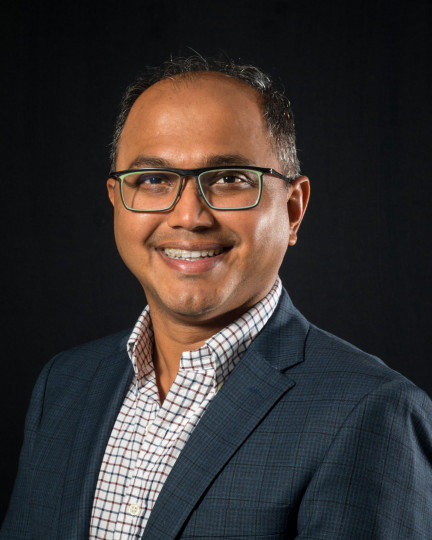
Dr. Ketan Kulkarni, photo by Ryan Wilson IWK
“The medicine has evolved from identical care for all to individualized care,” says Dr. Kulkarni, noting that nothing could be more relevant to hematology oncology in particular.
“As you can imagine, there is vast complexity in these areas and no two patients are identical,” Dr. Kulkarni says. “This means that we need advances in care to accommodate for the variations in genetics, patient characteristics, biology of disease, differential response to therapy, different outcomes, and risk factors,” Dr. Kulkarni says. “The precision medicine centre is the next logical step in this direction.”
Nora’s vision has improved immensely since her gene therapy treatment – something that wouldn’t have been possible without genetic testing at the IWK.
“Before she was treated, she had night blindness. As in any dark room she couldn’t see anything,” says Polk. “At school she always had to have bright lights on. She had a desk lamp. She had a magnifier. She was getting trained with a white cane. She couldn’t read small print.”
Now – Nora no longer uses a desk lamp and doesn’t require help at school. Her mother says she’s focused on the art, crafts, and stories she loves.
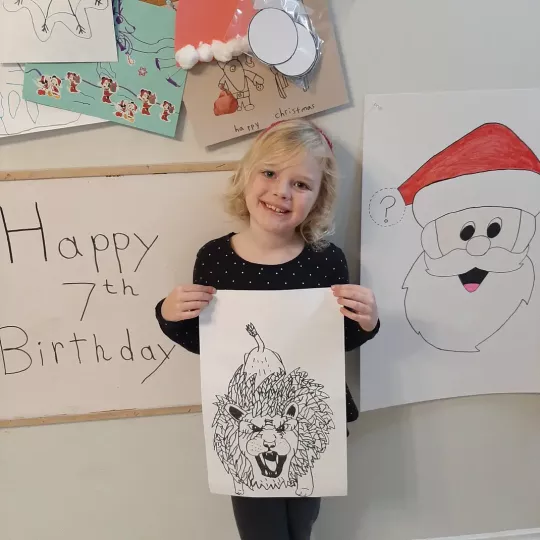
Nora Francis, photo submitted.
“She loved doing that before she had the treatment, but now we know that this is something she can continue to love.”
And with the establishment of the new IWK Maritime Centre for Precision Medicine, Nora won’t be the only one with a bright – and healthy – future ahead.
